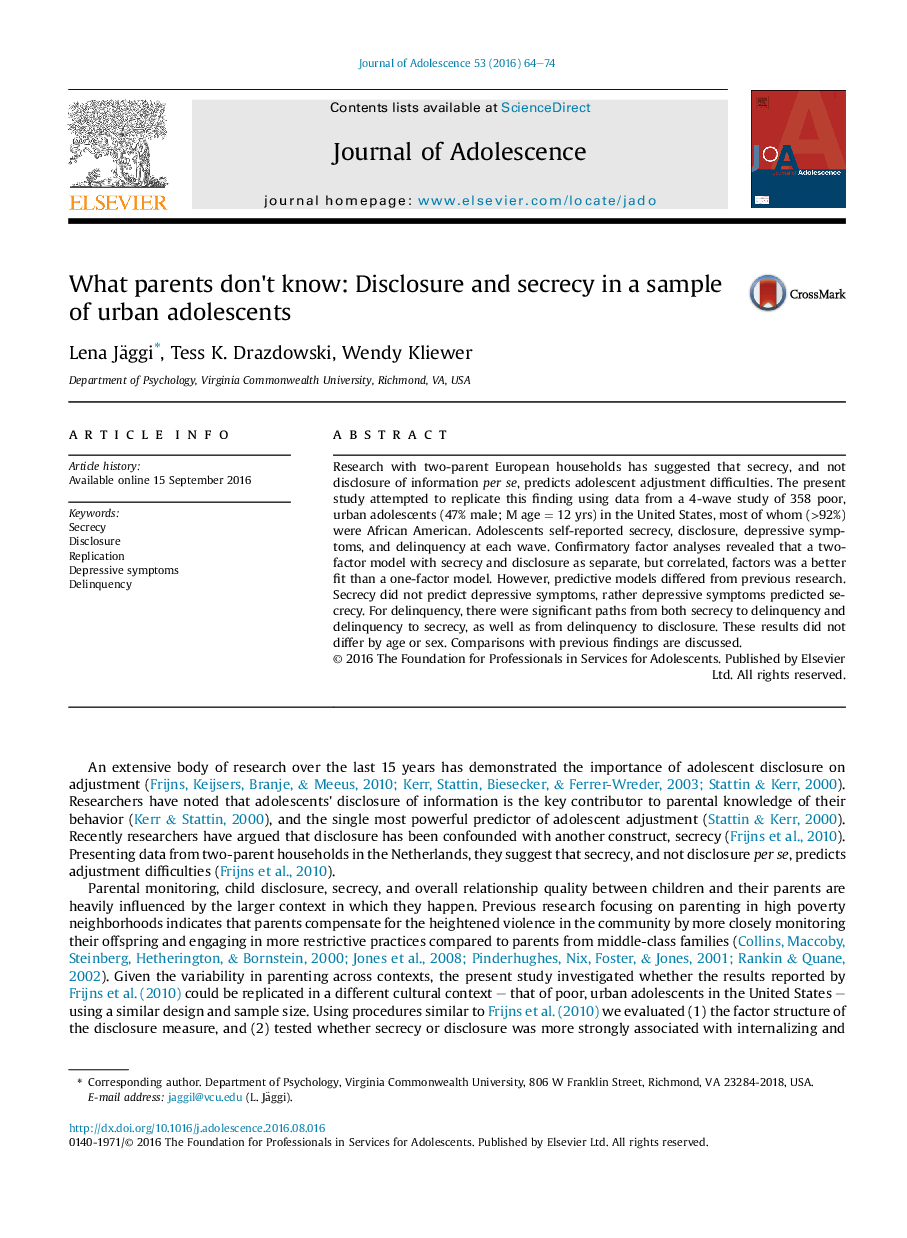| کد مقاله | کد نشریه | سال انتشار | مقاله انگلیسی | نسخه تمام متن |
|---|---|---|---|---|
| 5033883 | 1471510 | 2016 | 11 صفحه PDF | دانلود رایگان |
- Secrecy and disclosure are best represented by a two-factor structure.
- Across sex and age cohorts, depression predicts secrecy and not the obverse in our urban US sample.
- Context mattered more in predicting internalizing versus externalizing symptoms.
- Cultural differences exist in relations between secrecy, disclosure, and adjustment.
Research with two-parent European households has suggested that secrecy, and not disclosure of information per se, predicts adolescent adjustment difficulties. The present study attempted to replicate this finding using data from a 4-wave study of 358 poor, urban adolescents (47% male; M age = 12 yrs) in the United States, most of whom (>92%) were African American. Adolescents self-reported secrecy, disclosure, depressive symptoms, and delinquency at each wave. Confirmatory factor analyses revealed that a two-factor model with secrecy and disclosure as separate, but correlated, factors was a better fit than a one-factor model. However, predictive models differed from previous research. Secrecy did not predict depressive symptoms, rather depressive symptoms predicted secrecy. For delinquency, there were significant paths from both secrecy to delinquency and delinquency to secrecy, as well as from delinquency to disclosure. These results did not differ by age or sex. Comparisons with previous findings are discussed.
Journal: Journal of Adolescence - Volume 53, December 2016, Pages 64-74
